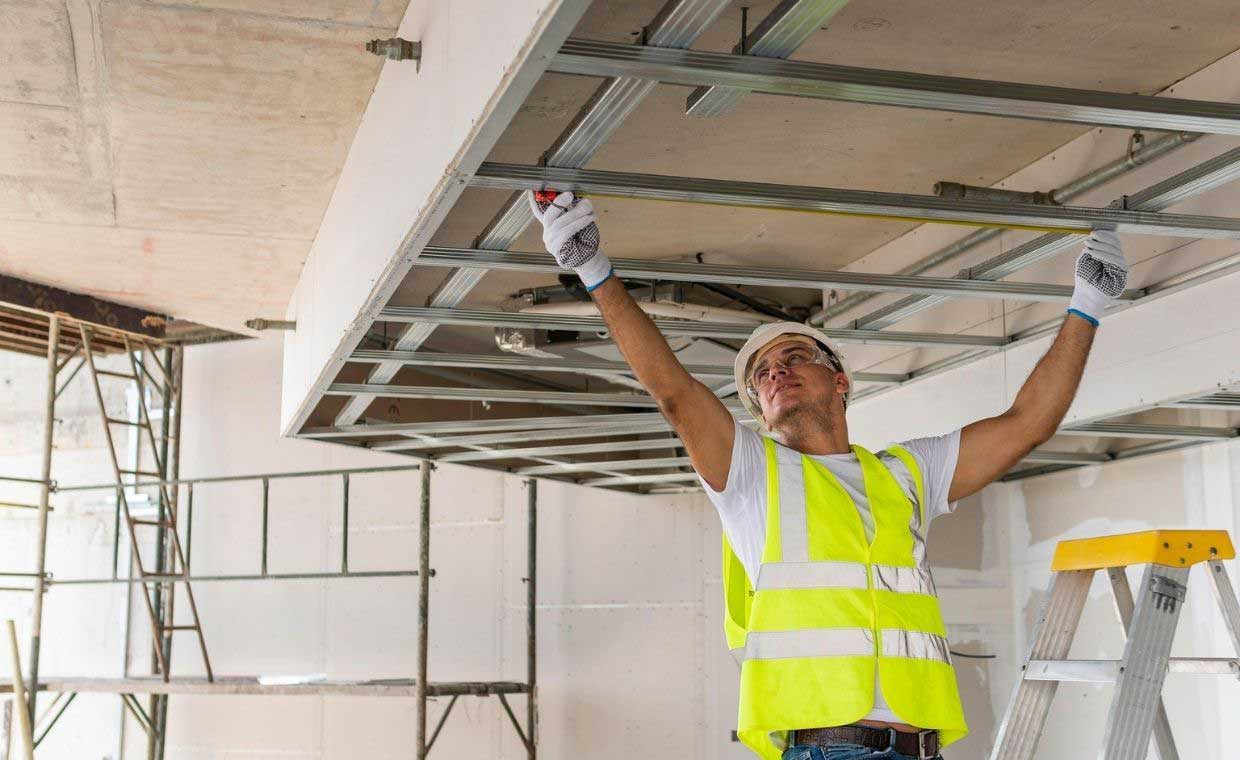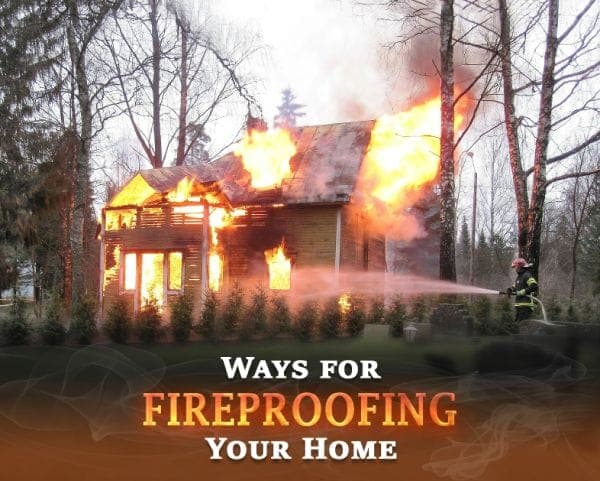
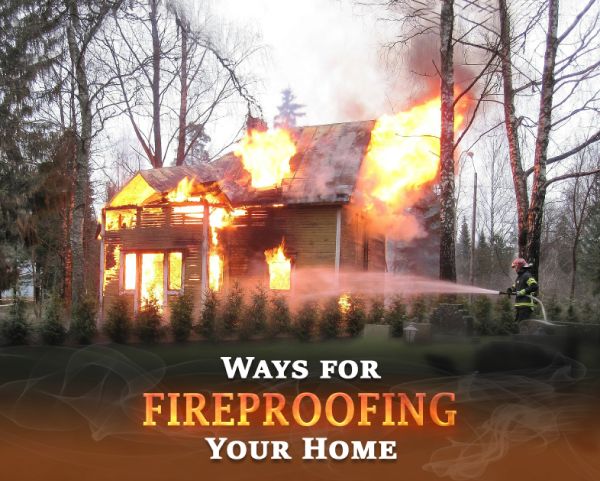
Every homeowner’s nightmare involves seeing their homes being consumed by a fire. Indeed, it’s easier to move on from a flood, but a household fire is a different story. Fire is more costly and also more difficult to recover from, especially if you’re living in an old house made from wood and other highly flammable materials.Fire is a simple process where a fuel is ignited and it gives light, heat and flame is created. That is why since ancient times, fire is very useful for the people. It can be used for light and warmth but at the same time, fire can be dangerous and even fatal. Fire spreads so rapidly that even a small fire can get out of control very quickly. It only takes a couples of minutes for an entire house to go up in flames and smoke. In house the most common causes of fire are due to cooking, heating, smoking, faulty wiring, electric appliances, flammable liquids, curious children’s using stove, gas leakage, candles, etc.
According to the research conducted by National Fire Protection Association (U.S. 2012-2016), its reports reveals that more than one-quarter (27%) of reported fires occurred in the home environment, from which the leading cause was related to cooking. Therefore, homeowners should be very much aware of the danger that a fire entails. So, they strive to make sure that their homes are fully equipped for anything, especially when it comes to potential fire hazards.
Now the question arises – What are the usual strategies for preventing a fire from breaking out?
Let’s take a look at some of them.
Major Strategies & Ways to Fireproof your Home
01. Make an Assessment of your Home
Preparing for a disaster involves keeping tabs of potential hazards. For sure, there are things around the house that can spark a fire, so it’s important to examine items that might start a conflagration. Along these lines, you might want to consider assessing your home every now and then. You might also consider doing an inventory of possible fire hazards such as chemicals, fuel canisters, celluloid film, or any other highly flammable material. By knowing about these items in the first place, you can have a good idea of the measures you should be applying to fireproof your home.
02. Create a List of Emergency Services
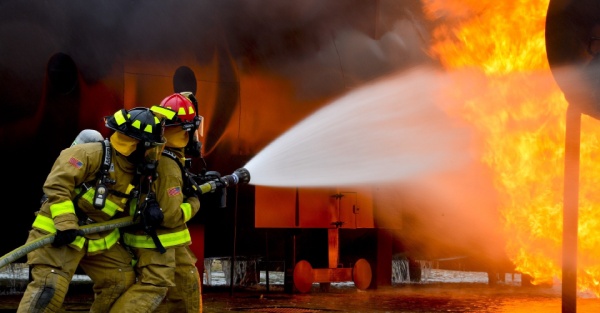
It’s always a good idea to prepare a list of phone numbers you can contact in case a fire breaks out. You can place this list near the phone. Make sure that it includes the numbers of the local fire department and paramedics services. It also helps if you have the contact information of companies that can help you clean up after a fire. Find professionals such as ASAP Restoration ahead of time, so you can get back into your home quicker afterwards.
03. Use Fire Retardant Materials
Anything around the house can catch fire, and the only way for you to contain its spread is to use fire-retardant building materials. It is said that non-combustible materials are safe up to certain point to use in building a house for the simple facts that they cannot become a fuel for fire. According to the ‘U.S. Department of Commerce – National Bureau of Standards’ – “All structural members are required to be of incombustible materials irrespective of the degree of fire resistance.” Therefore, fire-resistant building materials like stone, brick, steel, wrought & cast iron, aluminium, concrete, glass, AC board, gypsum, terracotta, plaster, etc. can be used in construction to minimize the fire related damages.
Also, for interiors, the fabrics for curtains and even the floorboards can be rendered fire resistant if you know how. The best way to do this is to add fire retardant coating on your walls, cables, fabrics, and other materials that can help spread fire. You might as well consider making your own fire-retardant paint in the process.
04. Install Smoke Detectors

Another important consideration is to put up an early warning system that can help you act immediately in a fire-related emergency. For this, make sure to place smoke detectors with smart sensors in areas where fire usually occurs, such as the kitchen or the basement. Installing automatic sprinkler systems is optional, although you might as well do so to add another layer of security to your home.
05. Keep Fire Extinguishers Handy
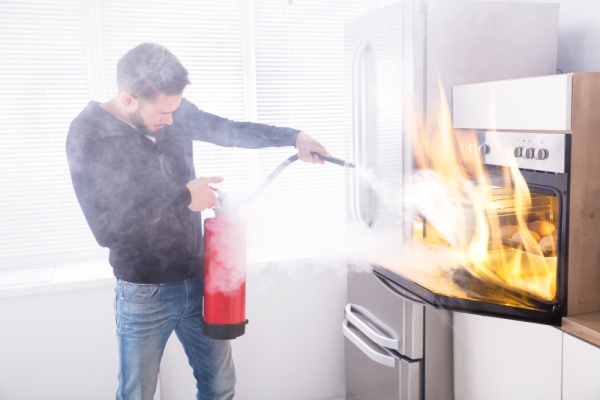
Never forget, fire extinguishers are your first and best defense against a small fire. Therefore, you should always keep a fire extinguisher in your kitchen and any other areas of the home with flammable materials, including basements and garages. And yes, with its placement, it is more important to understand how to operate it.
Also, you have to keep your fire extinguishers up-to-date, or they will not help to fireproof your home at the time of fire.
06. Look for Plants & Trees that don’t Easily Catch Fire
Try to avoid the highly burnable plants to reduce risk of fire like, cedar, pine, juniper, tall grass and spruce. If you’re fond of plants, you might as well consider potted flowers and shrubs that don’t easily catch fire. Opt for honeysuckles and currants which are known to resist intense heat and prevent the spread of fire.
Also, you need to mow your lawn regularly, since long grass can spread a fire and clean up the dry leaves, twigs and branches as often as possible.
Also make sure that the trees in your yard should be at least three meters apart and should be trimmed at least two meters from the ground up to avoid a fire spreading from the ground to the treetops.
Summing up, keeping your home fireproof is an important part of protecting your property. After all, your home is an investment, and it’s always important to secure it from anything that might cause considerable damage.
Also Read:
What is a Water Type of Fire Extinguisher?
8 Tips to Design Your Fireplace in a Home!

























